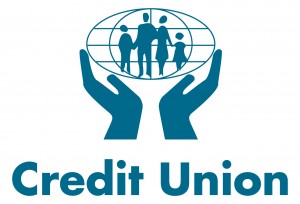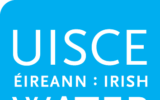18 October 2017
By Bryan Smyth
bryan@TheCork.ie

Business Feature: Tips on how to use technology to improve your bottom line
How Can Small Businesses in Ireland Achieve Success with the Help of Time Clock Software?
Employers have used time clocks for decades to track employee hours. There are a variety of systems that require punching in and out, some employers monitor the presence of employees on paper, and others use electronic devices. Time clocks simplify tracking employee hours because they replace written systems. However, they lack reliability. Employees can manipulate these clocks with things like ‘buddy punching’ where an employee punches in on a co-worker’s behalf.
Biometric time clock software has many advantages for Irish organisations. They alleviate concerns like HR time spent tracking overtime, reconciling hours worked, and the manipulation of a traditional time clock system. There are a few biometric time clocks that work well for small businesses, and we will review them here.
Perfect Clocks for Irish Small Businesses
Recent improvements in technology make fingerprint verification software more affordable for small businesses. Previously, large enterprises used these due to cost. However, the reduced price of these types of biometric time clocks makes it significantly easier for small businesses in Ireland to use. Web-based applications are also more user-friendly.
Irish businesses are also saving money by implementing these types of systems because it costs less to manage payroll, and the initial investment in a biometric time clock is well worth the cost savings over time. The advantages of tracking employees using biometric methods include:
- Eliminating dishonestly with buddy punching and other time clock manipulation techniques
- Reducing the cost of payroll management
- More efficient use of costly labor such as overtime
- Accuracy of data
- More accurate job costing based on labor needed for specific tasks
Some businesses experience pushback from employees when first transitioning to a biometric time clock software because they receive smaller pay cheques. With the reduction in labour costs due to more accurate reporting of hours, this is likely to be a significant side effect, and one of the reasons it is essential to make the change.
Any form of over clocking is theft, even if the intentions are not malicious. Implementing a more efficient clocking system makes it easier to prevent abnormalities. However, after such a transition, some employees feel that their relationship with their employer deteriorates due to lack of trust. It is essential to ease into the introduction of a biometric time clock software and make it clear that there are other benefits to this transition not related to dishonesty or distrust of employees.
Small Business Fingerprint Apps
The best biometric time trackers come with the ability to manage the data they collect, analyse employee metrics, and recognise trends. It is important to research options for your initial implementation and pay particular attention to the customisation of the application you currently use. Employee hour-tracking apps typically have four functions useful for any small businesses:
Collect data: The device can verify employee’s identity using fingerprint or optical input and either begin or end their shift.
Upload data: All information collected is stored in the cloud for added security.
Manage data: The software can identify trends in the data to help make decisions and future scheduling.
Process payroll: The software can manage payroll hassle-free by calculating hours worked and issue payments.
Employee Tracking for the Future of Irish Business
These biometric time clocks benefit employees as well as businesses. Positions that do not usually have direct oversight such as drivers or sales associates now have the freedom to work whenever it is convenient or necessary, and a supervisor does not have to the accuracy of the punch in or micro-manage the hours.
The correct reporting of hours frees employees to work earlier or later in the day without a negative impact on the business or its finances. Despite the pushback businesses may get from some employees, these systems place more responsibility and trust in the employee, to be honest, and do the right thing.
Types of Fingerprint Verification Time Clocks
Advance Systems and other companies have user-friendly applications allowing for a wide range of functions. Creating daily reports for absences or tardiness, as well as the ability to use smart devices make these systems a powerful tool for busy employers.
Two types of biometric time clocks are available. Capacitive readers measure the employee’s fingerprint and are more accurate than optical readers, which compare optical impressions.
It is important to understand what biometric time clocks can do and train employees on how to use them. These systems are gaining in popularity especially amongst many diverse sectors of Irish business and they provide increased value with their intuitive apps. The shift to using a new time tracking tool is hard, but for the long term, the cost savings and ability to efficiently manage hours makes it worthwhile. It’s never too late to make the change, and by investing in a new system now, businesses benefit for years to come.


